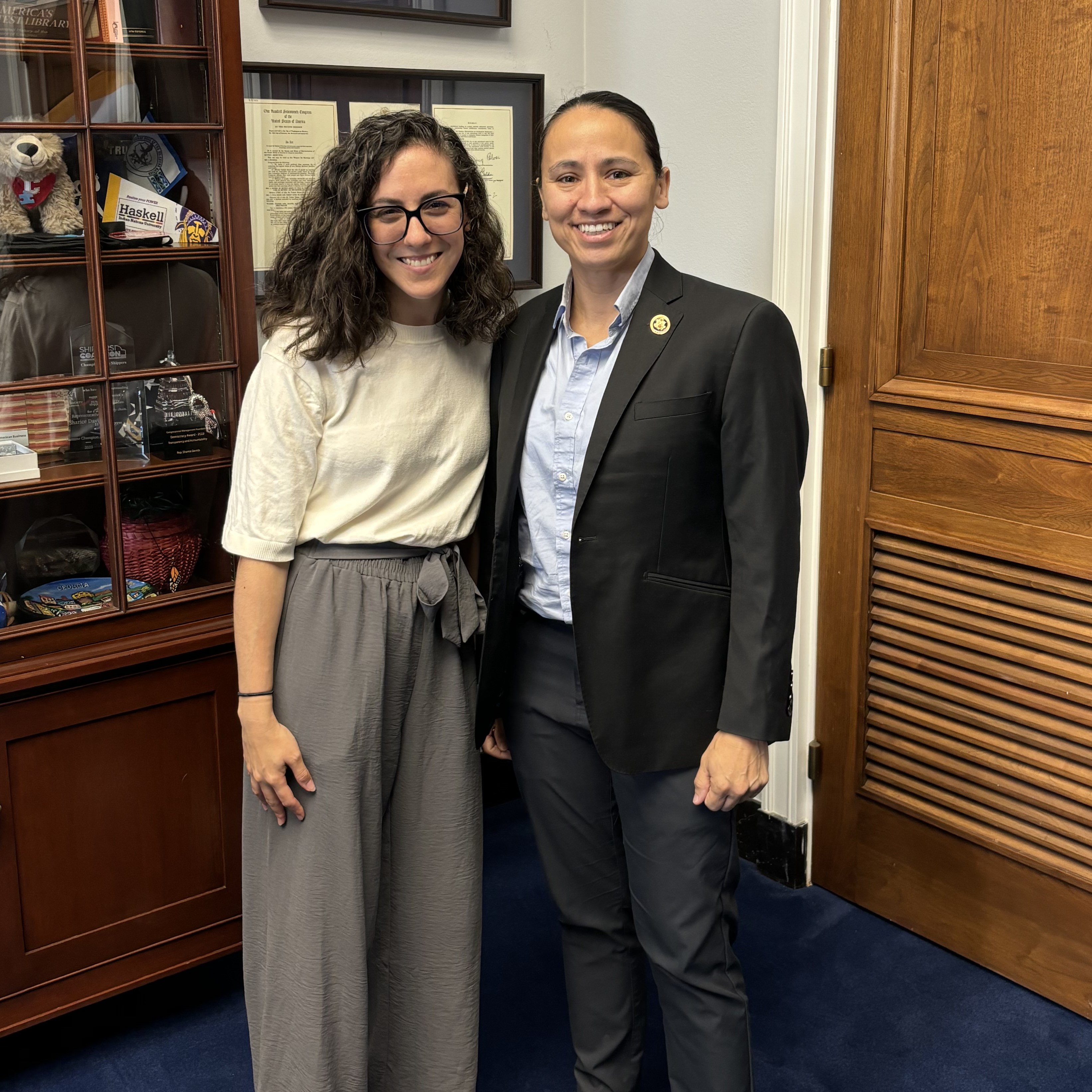Editor’s Note: Jewish Community Relations Bureau | American Jewish Committee Interim Executive Director Neta Meltzer attended Israeli Prime Minister Benjamin Netanyahu’s address to a joint session of Congress on July 24.
Even before I boarded my flight the morning of Wednesday, July 24, the reach of unprecedented security measures could be felt all the way in Kansas City. All around me, curious passengers eyed each other as security officers went person to person, re-checking every passenger’s ID before allowing us to board. We were on our way to Washington, D.C., and none of us had ever seen ID checks past TSA.
I arrived in a city infused with tension. Cab drivers, D.C. staffers and members of Congress all agreed: This was a level of security they’d never seen before. They mentioned Jan. 6, or Ukrainian President Volodymyr Zelenskyy’s visit. Israeli President Isaac Herzog’s visit last year didn’t elicit such a high level of vigilance. But today, Prime Minister Benjamin Netanyahu was scheduled to address a joint session of Congress, and police were being brought in from cities near and far to augment existing security forces already stretched thin.
As I made my way to meet Congresswoman Sharice Davids, who had graciously invited me to attend the session as her guest that day, I found myself stuck at a street corner, unable to enter the secured perimeter. Attendees and protesters alike congregated there, all waiting for word on where they could go and how they could get there. Finally, a staffer brought me through, and I was able to meet with Rep. Davids before navigating the maze of tunnels from the Rayburn House Office Building to the House Chamber.
No phones, no bags, just ID. I made my way to the gallery above the House Floor and found my seat. Around me, national leaders and representatives from Jewish communities throughout the country made their way to their seats, sharing warm greetings with those they knew. On the floor, I identified members of Congress I’d only ever seen on television or social media. Across the gallery, I realized that I was looking directly at Noa Argamani, the hostage who was recently rescued from Gaza, able to be with her ailing mother in the final days of her life.
In those moments, I could imagine, but didn’t truly know, what was happening outside. Without access to my phone for the hours I spent in the gallery, I couldn’t see the images of the protestors, their abhorrent messages, the property damage they caused. Still, it was striking when, as the prime minister finally entered the Chamber, he received a sustained and enthusiastic standing ovation. The difference between his reception inside the Chamber, compared to the hostility outside, was bewildering, a testament to how deeply divided some elements of our society are around not just him as a leader, but the country he leads. His speech was received with the same enthusiasm — countless points he made received standing ovations, cheers.
To see him and the delegation he brought in person moved something in me. As an Israeli-American, I have felt, since Oct. 7., a yearning to go to Israel, to be there physically with our people. In the presence of the brave IDF soldiers, Noa and her father, and the others who attended with the prime minister, it was, in a way, the closest I have been to Israel since Oct. 7. Emotions came crashing to the surface; I couldn’t immediately identify them all.
Afterward, traffic remained at a snarled stop. As I navigated the paralyzed city on foot, I saw protesters everywhere, identifiable by their trademark scarves and provocative signs. Some of them were simply going back to their hotels or buses. Others continued chanting into their megaphones and stopping to engage with passersby on the streets. On the phone, my twin sister, Nitzan, could hear the protestors in the background as we spoke. Even she, all the way in Denver, felt the hostility in the atmosphere through which I walked. The tension in the air remained throughout the evening and into the night.
This was an experience marked by the deep divisions it highlighted — among Americans and their perspectives and understanding of the state of Israel; among Israelis, with their own views about the speech and Netanyahu’s leadership; among our own local Jewish community around how we engage with Israel, its policies and its leaders; and within each of us, and how we have experienced, processed and responded to Oct. 7 and the war. But in the days that have followed this unforgettable trip, I have returned, in my mind, to what unites us. The urgency of bringing the hostages home; the importance of keeping Jews safe; the relentless resilience that has seen us through the challenges we’ve faced throughout history. The war is not yet over, and the future is uncertain. But we continue moving forward, navigating these historic times, guided by our values, strengthened by our community.



